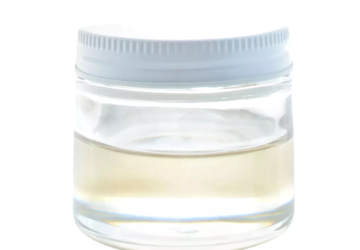Are you aspiring to get into medical school? One important factor that the admissions committee considers is your Science GPA. It’s not the same as your regular GPA, and it can be a bit tricky to calculate. In this blog post, we’ll walk you through everything you need to know about Science GPA and why it’s so important for medical school admissions. We will also provide an overview of how to calculate your Science GPA using various GPA calculator science such as AMCAS, AACOMAS, and TMDSAS. Finally, we’ll share some tips on how to improve your Science GPA and increase your chances of getting accepted into medical school. So let’s dive in and get you started on the right path towards achieving your dreams!
What is Science GPA and How is it Different from Regular
GPA?
In the context of medical school admissions, Science GPA is a crucial factor that reflects your academic performance in subjects relevant to medicine. Unlike Regular GPA, which includes all courses taken, Science GPA only takes into account grades earned in science-related courses such as biology, chemistry, and physics. Since these subjects form the foundation of medical education, a strong Science GPA is often an essential requirement for getting accepted into medical school.
Calculating Science GPA involves adding up the total grade points earned in science courses and dividing by the total number of science course credits, making it different from regular GPA.
Why is Science GPA Important for Medical School Admissions?
Introducing a key concept, science GPA is a crucial factor in medical school admissions. Medical schools evaluate both overall GPA and science GPA when assessing applicants, and a strong science GPA helps demonstrate that a student has the necessary foundation for success in medical school.
Science GPA reflects academic performance in subjects relevant to medicine, such as biology, chemistry, and physics. Calculating science GPA requires knowing the grades earned in each relevant course and weighing them by credit hours. Therefore, it is essential to maintain a good science GPA to increase the chances of getting accepted into medical school.
Overview of Science GPA Calculation
Calculating your Science GPA requires a careful review of your transcript to ensure accurate course classification. It is important to note that only science-related courses such as Biology, Chemistry, and Physics are included in the calculation. Courses that are not directly related to science may not be included in the calculation, which can significantly affect your Science GPA. Therefore, it is crucial to double-check your transcript before calculating your Science GPA for medical school admissions.
Using the AMCAS Science GPA Calculator
The AMCAS Science GPA Calculator is an invaluable tool for calculating your science GPA. With the calculator, you can easily input the grades received in science-related courses such as biology, chemistry, and physics while taking into account credit hours earned for each course. The calculator
also allows you to add relevant courses that may not be included in your official transcripts. By using this calculator, you can determine your competitiveness for medical school admissions and make informed decisions about your academic future.
Using the AACOMAS Science GPA Calculator
When it comes to calculating your science GPA for medical school applications, the AACOMAS Science GPA Calculator can be a useful tool. This free and user-friendly calculator allows you to input all of the relevant courses you have taken, including biology, chemistry, physics, and math, and then provides an accurate calculation of your science GPA based on the grades received in those courses. However, since not all medical schools use the same criteria for calculating science GPA, it’s important to check with each individual school to determine their specific requirements before submitting your application.
Using the TMDSAS Science GPA Calculator
The TMDSAS Science GPA Calculator is a valuable tool for students applying to medical school. By inputting your course names, grades, credits, and levels, you can achieve an accurate calculation of your science GPA. This calculation takes into account crucial courses such as biology, chemistry, physics, and math. It can help you see how your GPA may impact your chances of getting admitted into medical school. Make sure to double-check the inputs before submitting the final calculation as accuracy is essential in determining your competitiveness for medical school admissions.
Tips for Improving Your Science GPA
Improving your science GPA requires a strategic approach and consistent effort. Start by taking challenging courses relevant to medical school requirements and seek out resources such as tutoring or study groups if needed. If you received a low grade in a course, consider retaking it to improve your GPA. It’s essential to maintain consistent study habits throughout the semester rather than cramming for exams. By following these tips, you can improve your science GPA and increase your chances of being accepted into medical school.
Frequently Asked Questions
How is your science GPA calculated differently from your overall GPA?
Your science GPA is calculated differently from your overall GPA in that it only includes courses in biology, chemistry, physics, and math. On the other hand, your overall GPA includes all courses taken, including non-science courses.
It is worth noting that medical schools tend to weigh science GPA more heavily than overall GPA when evaluating applications. Therefore, it is essential to calculate both accurately to present a strong application.
Make sure to review your transcripts carefully and use a reliable GPA calculator to ensure accuracy.
How important is a strong science GPA when applying to medical school?
A strong science GPA is extremely important when applying to medical school. Admissions committees often use it as a predictor of academic success in medical school, and it can demonstrate an applicant’s proficiency in key subject areas.
However, while a high science GPA is essential, admissions committees also consider an applicant’s overall GPA, extracurricular activities, and clinical experience. Ultimately, a well-rounded application that showcases both academic excellence and relevant experience is crucial for gaining acceptance to medical school.
What courses count towards your science GPA for medical school?
Science courses that count towards your science GPA for medical school generally include biology, chemistry, physics, and math. Additionally, courses like psychology and sociology may be counted towards the science GPA if they are taught within a scientific context.
It is also worth noting that courses labeled as “science” or “biology” within other majors may be counted towards the science GPA. However, it is always best to consult with your pre-med advisor to determine which courses specifically count towards your science GPA at your institution.
Conclusion
In summary, calculating your Science GPA for medical school admissions is imperative in the application process. It differs from your regular GPA and is considered an essential criterion by medical schools to evaluate applicants. Understanding how to calculate your Science GPA using various calculators like AMCAS, AACOMAS, and TMDSAS is vital. Additionally, if you’re looking to improve your Science GPA, consider retaking courses or taking additional science courses to boost your grades. We hope these tips help you in your journey to medical school. For more guidance on the application process, check out our detailed blog on how to prepare for medical school admissions.








